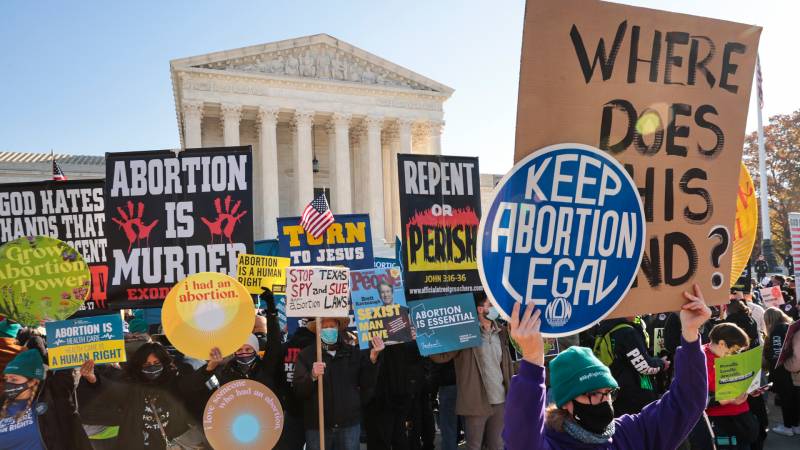On Wednesday, the Supreme Court heard oral arguments in Dobbs v. Jackson Women’s Health Organization in what looks to be the beginning of the end of Roe v. Wade, according to legal scholars. If that is the case, and Roe is reversed, there stands to be a number of ripple effects beyond abortion rights, too. In a new article for The Atlantic, “What Roe Could Take Down With It,” constitutional law expert Kimberly Wehle writes that “the logic being used against Roe could weaken the legal foundations of many rights Americans value deeply” including laws regulating marriage equality and contraception use, for example. We’ll consider the different layers of what’s at stake with abortion rights and beyond.
Related link(s):
